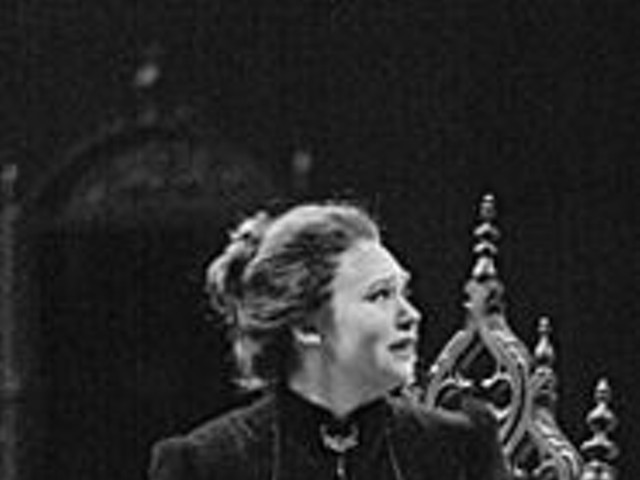But is St. Louis ready for opera? Even if it's an opera about Lindbergh -- or more specifically, an opera about two families, the Lindberghs and the family of Bruno Hauptmann, the man convicted of kidnapping and murdering the Lindberghs' infant son, Charles Jr.?
Michael Patrick Albano, director and librettist of Loss of Eden, the opera in question, thinks St. Louisans fascinated by Lindbergh but skittish about opera might not run screaming for the exits the minute a singer opens his mouth.
"The piece is musically very accessible," he says. "It is tonal music. It's emotional music. It is the kind of music that can be immediately appealing."
Appealing, or appalling? Can we expect pompous, trilly vocal inflections, the kind that have scared away so many people raised on pop music?
"Certainly, it is sung text," he concedes. "What is very best about opera -- the emotional quality of sung text -- when overdone, leads to the use of the word 'operatic' in a pejorative sense. But the people in this opera are grounded human beings. So it wouldn't make sense to have them singing high nineteenth-century opera."
All of us who have successfully avoided the high nineteenth-century operatic experience may not know that those babies can run long: three hours and more. Loss of Eden will not consume that much of your time. It is divided into just two acts, and rehearsals have been running one hour, forty minutes: about as long as a movie.
"It's as long as it needs to be," he emphasizes. "That's how long it took us to say, or sing, everything we need to say. So you come away with something to think about, but you're not exhausted. I'm often disheartened, not when opera is bad but when it's excellent, and yet there are so many empty seats at the end, simply because people don't want to sit there for three hours."
While researching the piece, Albano discovered plenty of local fandom. "It was amazing how many people have some anecdotal information about Lindbergh," he says. "Everybody knows something. Everybody has a jigsaw puzzle piece. So there is an entrance into the piece there."
People who know the phrase "Spirit of St. Louis" but little about Lindbergh's life should not expect a local setting, however. The Lindberghs lived in New Jersey and the Hauptmanns in New York. (Lindbergh, who was born in Minnesota, named his plane after St. Louis because that's where his key investors lived.)
Seventy-five years after his historic flight, we will see if local audiences will be willing to invest a little time, money and attention in an opera that details the most painful episode of the pilot's life.





